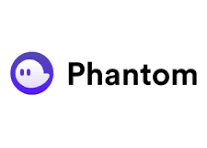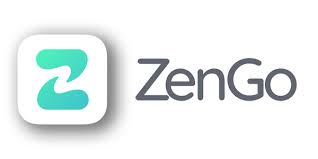A Closer Look at Leading Wallets
Here is a detailed overview of some of the most recognized and widely used crypto wallets, including their history and frequently asked questions.

Trust Wallet
Trust Wallet started as a non-custodial mobile wallet and was acquired by Binance in 2018. It's known for its broad support of cryptocurrencies and its direct integration with Binance and other decentralized applications (dApps).
FAQs
- Is Trust Wallet safe? Yes, it is a non-custodial wallet, meaning you own your private keys, which are stored securely on your device. Trust Wallet does not have access to your funds.
- What chains does it support? It is a multi-chain wallet that supports a vast number of networks, including Ethereum, BNB Chain, Solana, and many others.

Coinbase Wallet
Coinbase Wallet is a self-custody wallet distinct from the Coinbase exchange. Launched in 2018 as "Toshi," a dApp browser, it was rebranded to Coinbase Wallet after being acquired by Coinbase. It allows users to control their private keys and interact with Web3 applications.
FAQs
- How is it different from Coinbase Exchange? Coinbase Wallet is a self-custody wallet where you hold the keys. The Coinbase exchange is a centralized platform that holds custody of your funds on your behalf.
- Can I use the same wallet on multiple devices? Yes, you can access your wallet on different devices by importing your recovery phrase.

Robinhood
Robinhood, founded in 2013, is a popular stock brokerage app that expanded into cryptocurrencies. Initially, crypto assets were held by the company, but they later launched the Robinhood Wallet, a separate, self-custody wallet that gives users full control over their crypto.
FAQs
- Is Robinhood Wallet a separate app? Yes, Robinhood Crypto and Robinhood Wallet are two different services. The wallet is a separate, self-custodial app.
- Do I own my private keys? With the Robinhood Wallet, yes. With crypto held on the Robinhood brokerage, no.

MetaMask
Developed by Consensys, MetaMask was first released in 2016 as a browser extension for interacting with the Ethereum blockchain. It quickly became the go-to gateway for the Web3 ecosystem, allowing users to connect to dApps and manage their digital assets.
FAQs
- What is MetaMask's main use? It's primarily a wallet for Ethereum and other EVM-compatible networks, used to interact with decentralized applications (dApps).
- Is my Secret Recovery Phrase important? Yes, this phrase is your master key. Anyone who has it can access and control your funds. You should store it offline and never share it.

Phantom
Phantom launched in 2021 as a wallet for the Solana blockchain, quickly becoming a popular choice due to its user-friendly interface. It has since expanded to support other major blockchains like Ethereum, Polygon, and Bitcoin, offering a multi-chain experience.
FAQs
- Is Phantom only for Solana? No, it started as a Solana-native wallet but now supports multiple chains, including Ethereum, Polygon, and more.
- Is there a social feature? Phantom has a social feed that allows you to see what other Phantom users are trading, which can help you stay up-to-date on market trends.

Zengo
Zengo was founded in 2018 and is unique for being a "keyless" crypto wallet. It uses multi-party computation (MPC) technology instead of a traditional private key, which aims to provide a more secure and user-friendly experience by eliminating the single point of failure.
FAQs
- How does Zengo work without a private key? It uses MPC to split the traditional private key into two parts: one stored on your device and one on Zengo's servers. Both are needed to authorize a transaction.
- Can I lose my funds? Zengo's MPC technology is designed to make recovery easier and more secure, but it's still crucial to follow security procedures to protect your assets.

Rabby
Rabby is a browser-based wallet developed by Debank, specifically designed for DeFi (Decentralized Finance) users. It emphasizes asset security by providing pre-transaction risk scanning and a clear view of how a transaction will affect your balance before you sign it.
FAQs
- What makes Rabby different? Its primary focus is on security for DeFi users, with features like transaction simulation and automatic network switching to prevent common mistakes.
- Is it only for Ethereum? No, while it is designed for the Ethereum ecosystem, it is a multi-chain wallet for all EVM (Ethereum Virtual Machine) chains.